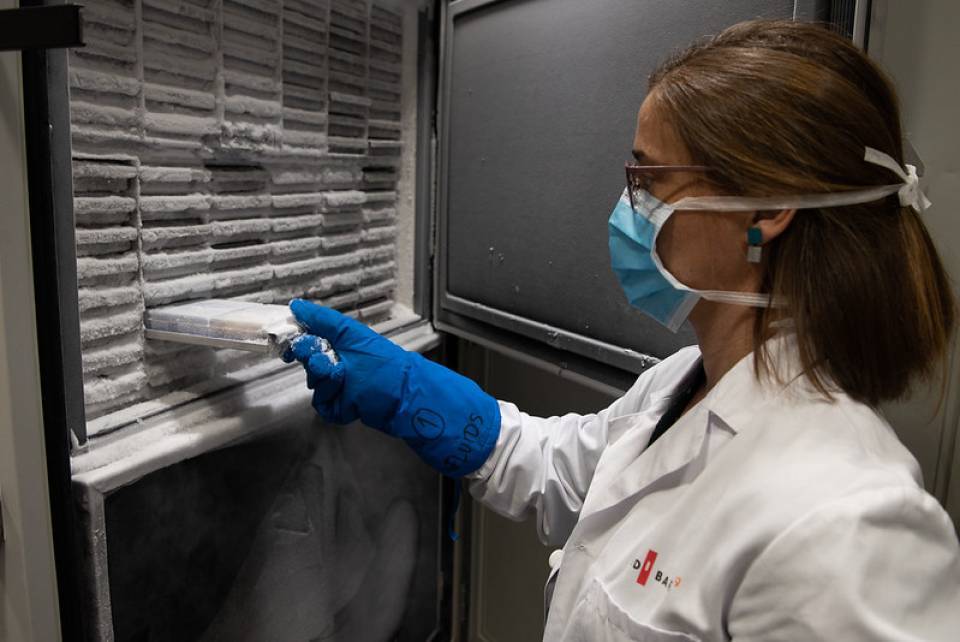A recent study has shown that the Epstein-Barr virus (EBV), which causes mononucleosis (among other diseases), plays a key role in the development of multiple sclerosis. It has been observed that the risk of multiple sclerosis is significantly higher in people who have had an EBV infection. Nevertheless, having been infected with EBV is not enough to cause the disease to develop, as studies show that up to 95% of the general population has been infected with EBV, yet only a small proportion develop multiple sclerosis. The possible mechanism involved in this relationship, and whether there is a causal link, remains unknown.
The Epstein-Barr virus is well known as the cause of mononucleosis (mono), which primarily affects adolescents. But this virus is very common and has two peaks of maximum incidence in people's lives: the first at 3-4 years of age, and the second at 15-16 years. When the Epstein-Barr infection occurs during childhood, the likelihood of getting mono is very low, but in adolescence it is much higher. This means that very many people become infected with the Epstein-Barr virus at some point in their lives, without being aware of it and without it resulting in mononucleosis.
Researchers at Harvard University have studied the link between infection with the Epstein-Barr virus and the development of multiple sclerosis. They analysed a sample of more than 10 million people who had enlisted in the US military. Using blood samples taken at that time, which were then repeated every two years, the researchers used serological analysis to analyse whether the soldiers had been in contact with the virus, regardless of whether or not they had showed signs of the disease.
Of all the participants, they found that 801 people developed Multiple Sclerosis during military service. Of these, 96% were already positive for the Epstein-Barr virus at the time of enlistment. Of the 35 cases that were EBV-negative at the start, 34 became EBV-positive before developing multiple sclerosis, and only one case remained negative despite having the disease.
A control group (a group of people from the same sample, but without multiple sclerosis) was also studied. In this group of 1566 people, it was found that more than half had also had the Epstein-Barr virus, yet had not gone on to develop multiple sclerosis.
The conclusion drawn from this study was that the Epstein-Barr virus is a necessary factor for developing multiple sclerosis, but is not sufficient on its own. The evidence for this is that half of the group without multiple sclerosis had also been infected with the virus, but did not develop the disease. Therefore, the research shows there is a significant association between these two factors, but not a causal relationship. This means that being infected with the Epstein-Barr virus does not lead to the development of multiple sclerosis, and there are many other factors involved, for example, a predisposing genetic background, smoking, or having low levels of vitamin D.
It is estimated that almost 95% of the population is infected with the Epstein-Barr virus at some point in their lives. This is why it is important not to be alarmed or draw hasty conclusions from the studies. In this case, only a small proportion of people who have had the Epstein-Barr virus are at risk of developing multiple sclerosis, and only if they fulfil many other criteria that are not entirely understood. Further studies are needed to confirm causal relationships between different risk factors and the development of diseases.
Information documented by: Dr Albert Saiz and Dr Yolanda Blanco, Neurology Department, Neuroimmunology-Multiple Sclerosis Unit, Hospital Clínic de Barcelona.




